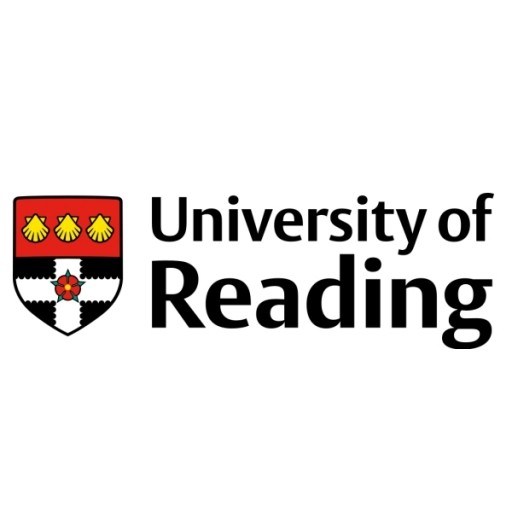Photos of university / #uniofbeds
The Bachelor of Science in Psychological Approaches to Health and Management at the University of Bedfordshire is a comprehensive program designed to equip students with a solid understanding of psychological theories and their practical applications in the fields of health and management. This course explores the fundamental principles of psychology, focusing on how psychological insights can be used to promote wellbeing, improve organizational practices, and enhance management strategies within various health-related settings. Students will engage with a broad curriculum that covers topics such as cognitive psychology, health psychology, stress management, motivation theories, interpersonal communication, and leadership skills vital for effective management in health environments.
Throughout the program, learners will develop critical thinking and analytical skills necessary to interpret psychological research and apply theoretical knowledge to real-world scenarios. The course emphasizes a multidisciplinary approach, incorporating insights from behavioral sciences, clinical psychology, and organizational behavior, ensuring graduates are well-prepared for diverse career paths. Practical modules include case studies, research projects, and placements that provide hands-on experience in health settings, management, and organizational development.
The program also focuses on the development of soft skills such as communication, teamwork, problem-solving, and ethical decision-making, which are key to success in health services management and psychological support roles. Graduates will be equipped to pursue careers in health promotion, mental health services, organizational consultancy, community development, or further study at postgraduate levels. Modular in structure, the course offers flexible learning options, enabling students to tailor their studies according to their career aspirations and interests. The University of Bedfordshire ensures a supportive learning environment with experienced faculty members dedicated to fostering academic excellence and professional growth. Upon completion, students will be capable of contributing meaningfully to improving health outcomes and organizational effectiveness through informed psychological approaches.
The Psychological Approaches to Health and Management programme at the University of Bedfordshire offers students a comprehensive understanding of the psychological theories and practical applications relevant to health, well-being, and organizational management. This innovative programme is designed to equip learners with the knowledge and skills necessary to address complex psychological issues encountered in healthcare environments, workplaces, and community settings. Throughout the course, students explore various psychological approaches, including cognitive-behavioral therapy, health psychology, and organisational psychology, gaining insights into how these frameworks can be applied to promote mental health, improve patient outcomes, and enhance workplace productivity.
The curriculum combines theoretical foundations with practical experience, encouraging students to critically analyze current research and integrate evidence-based practices into their professional roles. Modules include topics such as psychological assessment techniques, stress management strategies, behavioural change interventions, and the dynamics of team management. Students also engage in case studies, simulations, and research projects, which foster the development of analytical skills and practical competencies vital for effective management within health-related professions.
With a focus on both individual and organizational well-being, the programme prepares graduates for careers in healthcare management, mental health support, public health promotion, and organisational consultancy. It emphasizes multidisciplinary approaches, encouraging students to work collaboratively across different sectors to develop innovative solutions to contemporary psychological challenges. The programme also aims to enhance students' communication, leadership, and ethical decision-making abilities, ensuring they are well-prepared to make a positive impact in their chosen fields.
Delivered through a flexible learning structure, including lectures, workshops, and online resources, the programme accommodates a diverse student body, fostering an inclusive learning community. The faculty comprises experienced psychologists and health professionals dedicated to mentoring students and supporting their academic and vocational development. Upon completion, graduates will have gained a robust foundation in psychological principles applicable to health and management, empowering them to contribute effectively to improving mental health and organizational efficiency in various settings.
The undergraduate program in Psychological Approaches to Health and Management at the University of Bedfordshire requires applicants to possess a minimum of A-levels or equivalent qualifications, demonstrating academic competency in relevant subjects such as psychology, health sciences, or social sciences. Prior experience or interest in health management and psychological theories can be advantageous but is not mandatory. Prospective students must complete the online application form through the university's admissions portal and submit supporting documents, including academic transcripts and a personal statement outlining their motivation to pursue this field. International applicants are required to demonstrate English language proficiency through standard tests such as IELTS or equivalent, with minimum scores specified by the university. The program emphasizes a multidisciplinary approach, combining psychological theories with health management practices, which requires students to engage in coursework, group projects, and supervised placements or practical sessions designed to enhance their applied skills. Admission is competitive and may involve an interview or assessment task to evaluate candidate suitability. International students must meet visa requirements and comply with UK visa regulations. The program's structure aims to equip students with comprehensive knowledge in psychological approaches relevant to health and management sectors, fostering skills in critical thinking, research, communication, and professional practice. It prepares graduates for careers in health promotion, clinical settings, organizational management, and policy development, among other areas. Successful applicants will join a dynamic academic environment that encourages interdisciplinary learning and practical application of psychological theories in real-world health and management contexts. The university also values diversity and equal opportunity in its admissions policy, striving to admit students from varied backgrounds to enrich the learning experience. Financial considerations include tuition fees, which vary for home and international students, and available scholarships or bursaries may assist in funding studies. Applicants are advised to consult the official university website for detailed and updated admission requirements, entry deadlines, and application procedures to ensure compliance with all specified criteria.
The University of Bedfordshire offers various funding options for students pursuing the Psychological Approaches to Health and Management postgraduate programme. International students may be eligible for scholarships such as the Vice Chancellor's Scholarship, which provides financial support based on academic merit. Additionally, students can explore government-funded loans, including the UK Student Loans for eligible residents. The university also partners with external organizations offering bursaries and grants specifically targeted toward students in health sciences and management disciplines. For national students, the UK government’s Postgraduate Loan scheme may cover part of the tuition fees, subject to eligibility criteria. The university encourages prospective students to apply early and review the specific financial aid opportunities relevant to their residency status and individual circumstances. Payment plans are often available, allowing students to spread the cost of tuition over multiple installments. The university's financial aid office provides detailed guidance and support to help students navigate available funding options. Furthermore, students can seek part-time work opportunities both on and off-campus to supplement their income during their studies. International students should also consider external funding sources in their home countries, such as government scholarships or private sponsorships, which may support their studies abroad. Overall, while specific tuition fees for the programme are published on the university website, diverse financing options are available to facilitate access to the programme, making higher education in psychological approaches and health management more accessible. Students are encouraged to contact the university’s financial services team for personalized advice and assistance in securing appropriate funding to support their academic journey.
Psychological Approaches to Health and Management at the University of Bedfordshire is a comprehensive programme designed to equip students with a thorough understanding of psychological theories and practices relevant to health promotion and management contexts. The course provides a detailed exploration of various psychological approaches, including cognitive-behavioral, humanistic, psychodynamic, and positive psychology methods, focusing on their application in health improvement strategies and organizational management. Students will analyze how psychological principles can influence health behaviours, facilitate behaviour change, and improve wellbeing in individual and group settings. The curriculum combines theoretical knowledge with practical skills, emphasizing evidence-based interventions and ethical considerations in health psychology and management practices. Learners will engage in case studies, research projects, and real-world problem-solving scenarios to develop critical thinking and analytical skills necessary for careers in health promotion, organisational consultancy, or further academic studies. The programme aims to foster a comprehensive understanding of the psychological factors impacting health and management, preparing graduates to work effectively in multidisciplinary teams and diverse environments. By the end of the course, students are expected to have developed essential competencies in psychological assessment, intervention planning, and evaluation, as well as an awareness of the social and cultural dimensions influencing health and management practices. The programme also includes opportunities for placements and practical training, enhancing employability and professional development. Overall, this degree offers a robust foundation for those interested in pursuing careers that require a deep understanding of psychological approaches to enhancing health outcomes and improving management processes in various sectors, including healthcare, education, and corporate settings.







